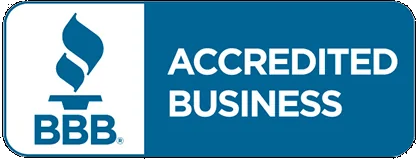

Understanding Mortgage DTI Ratios and 5 Tips to Improve it!
Learn five effective ways to lower your DTI, strengthen your finances, and put yourself in a better position to afford your dream home.
When you're stepping into the realm of real estate and homeownership, understanding the financial metrics used in qualifying your mortgage becomes crucial. One such vital metric is the Debt-to-Income (DTI) ratio, an instrumental factor in determining your eligibility for a mortgage. In this comprehensive guide, we'll delve into the intricate details of what the DTI ratio entails and explore five effective strategies to lower it, granting you a clearer path to securing your dream home.
At its core, the DTI ratio is a financial calculation that assesses the proportion of your monthly debt obligations against your gross (pre-tax) monthly income. It encompasses a spectrum of monthly financial responsibilities, ranging from mortgage payments and car loans to minimum payments on other loans or credit cards. However, it's imperative to note that everyday living expenses like fuel, groceries, and utilities remain excluded from this calculation.
The role of the DTI ratio in the world of mortgages cannot be overstated. Lenders scrutinize this metric to gauge your financial capability of managing additional debt. The magic number often referred to in this scenario is 36% or lower. A DTI ratio within or below this range signifies a financially comfortable mortgage payment, enhancing your odds of loan approval. Conversely, a higher DTI ratio could potentially impede your dreams of securing the desired home loan.
5 Ways to Lower Your DTI Ratio
- Strategically Clearing Debts Before Applying For The Mortgage: By paying off existing debts, you're effectively eliminating recurring monthly payments. To maximize the impact, it's advised that you tackle smaller debts or those with higher monthly payments. This approach will yield the best result in terms of improving your DTI ratio.
- Extended Instalment Loan Repayments: For substantial loans like student loans, car loans and personal loans, extending the repayment period (amortization) can substantially decrease your minimum monthly payments, consequently reducing the DTI ratio. Yet, it's important to weigh this against the additional interest that accumulates over the extended life of the loan.
- Leveraging Credit Card Transfers: Transferring your credit card debt to cards with lower or even no introductory interest rates can significantly lower both your monthly payments and the total amount paid over time. This strategy demands vigilance, as you may need to hop between such promotional offers to maintain this advantage.
- Diversifying Your Income Streams: With the blossoming opportunities of online entrepreneurship through platforms like Etsy or YouTube, there may be opportunities to supplement your regular monthly income. Capitalizing on your unique skills or hobbies can potentially infuse your finances with a steady stream of additional funds.
- Exploring 401k Loans: Consider tapping into your 401k fund to settle outstanding debts. The advantage lies in repaying this loan at zero interest, though it's important to remember that taxes are applicable to the withdrawn 401k amount. Timely repayment of this loan ensures the preservation of your retirement savings.
By proactively engaging in these strategies, you aren't just enhancing your financial outlook; you're optimizing your budget, potentially boosting your credit score, and positioning yourself to comfortably afford the home of your dreams. Contact Onshore Mortgage, LLC. should you require personalized insights or guidance regarding your DTI ratio and how it affects your home purchase or refinance. Your journey toward homeownership begins with informed financial decisions, and we're here to pave the way for your success.

Latest Posts


Grant R. Menard MLO NMLS# 17308
CLICK HERE
Onshore Mortgage

Massachusetts Division of Banks NMLS#MB1995582
CLICK HERE
The information contained in this site has been prepared by an independent third party and is distributed for educational purposes only. This is designed to give helpful tips on the mortgage process and is not intended to give legal advice.
Information is considered reliable but not guaranteed. This is not a pre-qualification, pre-approval, loan approval or commitment to lend. We arrange but do not make loans.

.webp)
.webp)
